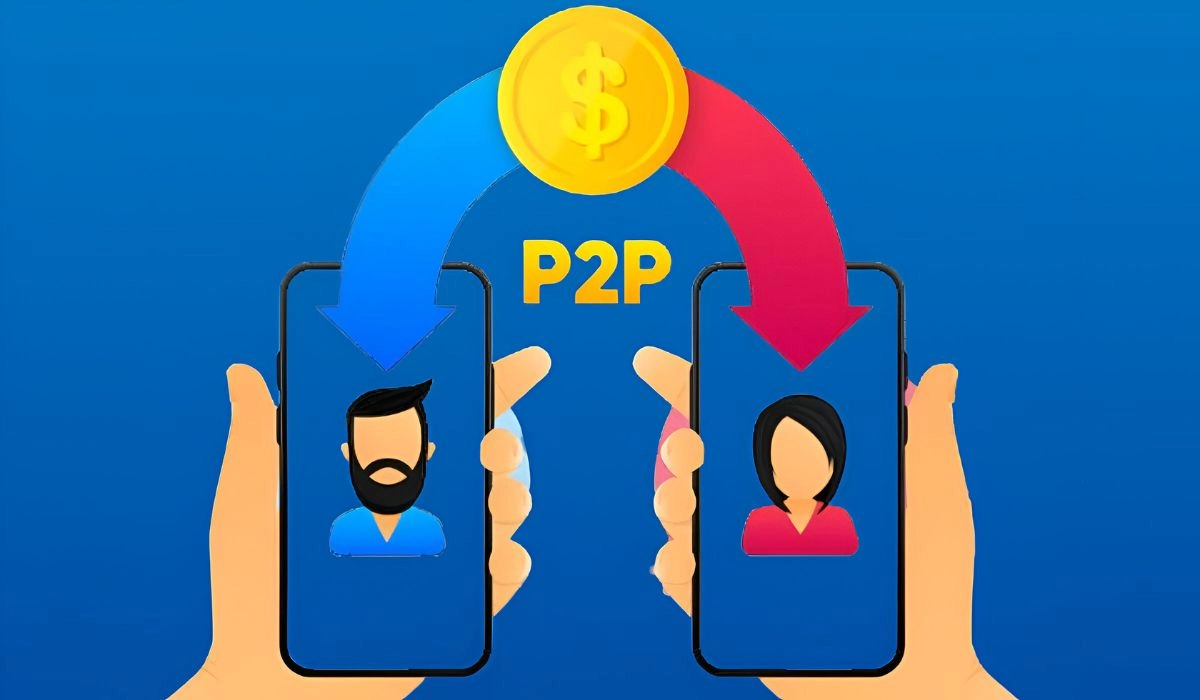Crypto trading is one of the most popular investment activities nowadays. One main feature of cryptocurrencies is that it facilitates peer-to-peer (P2P) transactions or trades directly between the buyer and seller while ensuring that all transactions are visible on the blockchain. Peer-to-peer trade is the direct exchange of goods, services, or assets between two people without the need for intermediaries like banks or brokers. In P2P trading, buyers and sellers communicate directly via a platform that facilitates their connection. This method is popular in cryptocurrency, where users trade directly with each other.
In this article we will discuss what peer-to-peer trading is, the features included, its working, and its advantages and disadvantages.
What is P2P Crypto Trading?
Peer-to-peer trading is the buying and selling of cryptocurrency directly between users without any intermediaries. P2P trading provides a secure and trustworthy transaction, all of the details are added to the blockchain, preventing any chances of manipulation. On traditional exchanges, the trade is handled by an intermediary, whereas on crypto exchanges, the trade is overseen by a smart contract and is carried out directly between the buyer and seller.

P2P platforms often provide features like secure payment systems and user ratings to ensure trust and transparency. It offers flexibility, lower fees, and the ability to negotiate terms, making it a preferred choice for many individuals worldwide. Crypto exchanges provide P2P trading as a way to stay true to the ethos of the crypto economy. This also ensures safety and security for consumers.
key features of P2P trading
- P2P platforms have a much simpler interface, making it easy for users to navigate.
- One of the important features of any P2P exchange is the acceptance of not one but many cryptocurrencies. Because of this, there is a sense of freedom for the users to trade different crypto assets and not just limit themselves to established ones. Because of this, more diversified users can use this method, which results in a wider market appreciation of tokens.
- It supports more than one way of payment method, such as bank transfers, credit cards, PayPal, and even cash in some situations. Offering multiple payment options opens the door for flexibility, giving users the freedom to purchase or trade cryptocurrencies the way they prefer.
- P2P trading is secure because the transaction is happening directly between the buyer and seller. Lack of security will lead to distrust of the exchange from users.
How Does P2P Trading Work?
- Registration: Sign up for an account on a peer-to-peer crypto trading platform.
- Create A Listing: Add a listing that shows which cryptocurrency you prefer to buy or sell, the amount of tokens, and the overall price that you eye for.
- Matching: The respective platform’s algorithm will match buyers and sellers according to the listings. While most of the platforms are automated, some platforms offer manual searches for choosing trading partners.
- Escrow Security: When a match is found, the cryptocurrency of the seller will be sent into an escrow account, where it will be until the trade is complete.
- Negotiation: Both seller and buyer will discuss the payment methods, exchange rates, and all other details.
- Confirmation And Execution: After negotiations, the transaction is processed. In the P2P platform, all payments usually go through bank transfer, PayPal, or any other payment service.
- Escrow Release: After the seller receives the payment, the escrow will release the crypto to the buyer’s wallet.
- Feedback And Rating: After the whole process, both sides can convey their feedback on the trade.
What Are The Advantages And Disadvantages Of P2P Trading?
Advantages
- P2P is a worldwide service, which means it is not limited to any particular geographic location. Trading is flexible no matter where you are and which currency you transact with.
- P2P trading is not controlled by centralized entities and all transactions are executed by smart contracts. There is also no limit on the amount of cryptocurrencies that can be traded in a P2P transaction.
- Low commission and transaction fees when trading P2P.
Disadvantages
- P2P trades are at risk of fraud. It is difficult to verify the authenticity of the other party before the transaction is made. The only opinion is trusting the person with your funds.
- Trades can take a while to be executed because of the delay in matching the buy and sell orders.
Conclusion
P2P trading facilitates transactions between users without the need for an intermediary and is a trading option commonly used in cryptocurrency exchanges. Due to its autonomy, low fees, variety of payment methods, and privacy, it is well-suited for decentralized trading. But it carries risks that include fraud, slower transactions, and minimal regulatory oversight.
However, escrow services on certain exchanges help to mitigate these risks, by providing additional security around the transactions. Though P2P trades present low costs and are flexible, they may not be for all users due to their dependence on user trust and the risk of disputes.
Even though it has its benefits, it also comes with great risks and disadvantages. The absence of regulatory oversight puts users at risk of fraud, scams, and unreliable counterparties. Miscommunication or dishonest practices can lead to disputes, and there are few means of recourse. Transactions can be slower than traditional methods, and the trust-based nature of P2P trading is cautionary. It should be prudent for users to use platforms with strong security protocols and good escrow services to reduce these risks. No matter if you are a beginner or an experienced trader, knowing these aspects of P2P trading will help you to get more benefits in the exciting world of cryptocurrencies.






